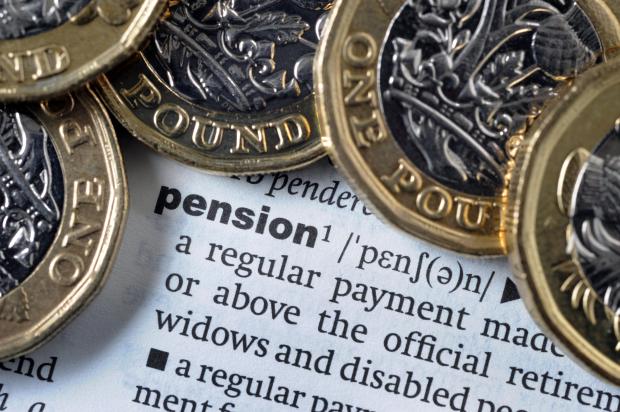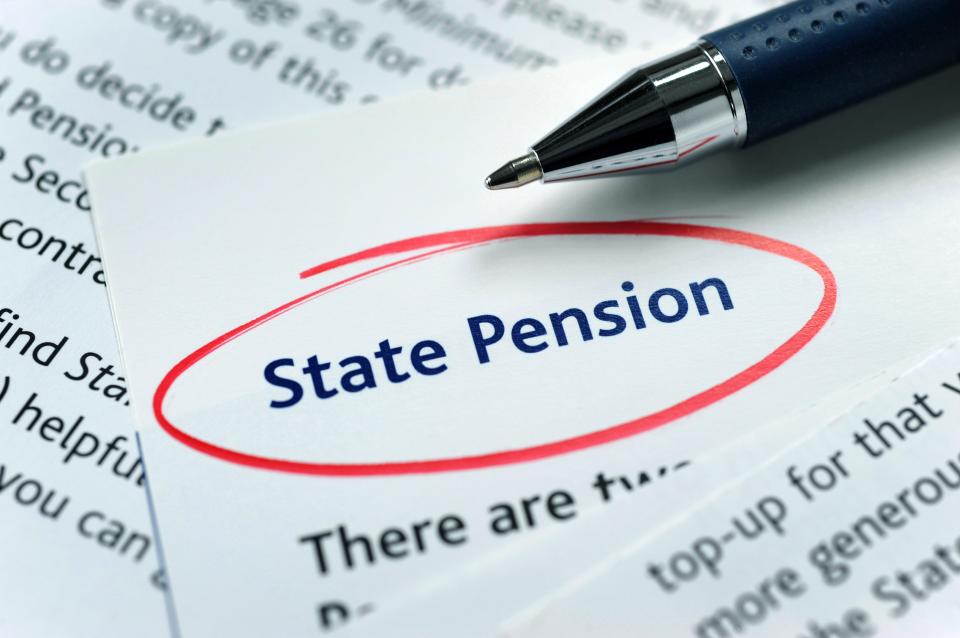Retirees hit by £450million state pension errors last year as DWP urged to ‘fix mistakes urgently’

THOUSANDS of pensioners are being short-changed by the Department for Work and Pensions (DWP), new figures reveal.
Currently, six out of every 100 claims are being underpaid, an increase from five out of 100 last year, despite significant efforts to correct previous errors.
The latest data reveals that tens of thousands of retirees were collectively short-changed by £450million in the last financial year.
The DWP has already paid out over £800million to over 100,000 pensioners, including widows and women over 80, after a four-year investigation into underpayments.
However, despite these efforts, the problem is still getting worse.
One of the biggest issues is mums missing out on free credits, known as Home Responsibilities Protection (HRP), for time spent raising their children.
Read more in money
Many mothers who claimed child benefit before 2000 didn't have their national insurance (NI) numbers recorded on their application, meaning they didn't automatically get the credits they were entitled to.
The taxman is currently writing to pensioners to sort this out, but experts fear the letters might be too complicated for some older people to understand.
Steve Webb, partner at pension consultants LCP, said: "It is astonishing that six in every hundred state pensioners are being underpaid.
"In some cases these underpayments have been going on for years and could amount to thousands of pounds.
Most read in Money
"When people have worked hard all of their lives, they have a right to expect that their pension will be paid at the correct rate.
"Given how complex the system is, it can be hard for people to know if they are getting the right amount or not, so it is all the more important that the Government gets it right.
"The DWP need to redouble their efforts to track down these errors and fix them as a matter of urgency."
The DWP admits that errors in recording NI contributions are a major cause of the underpayments.
They are now working with HMRC to correct these records and ensure pensioners get the money they deserve.
So, if you're a pensioner, it's worth checking your payments to make sure you're not being short-changed.
How does the state pension work?
AT the moment the current state pension is paid to both men and women from age 66 - but it's due to rise to 67 by 2028 and 68 by 2046.
The state pension is a recurring payment from the government most Brits start getting when they reach state pension age.
But not everyone gets the same amount, and you are awarded depending on your national insurance record.
For most pensioners, it forms only part of their retirement income, as they could have other pots from a workplace pension, earning and savings.
The new state pension is based on people's national insurance records.
Workers must have 35 qualifying years of national insurance to get the maximum amount of the new state pension.
You earn national insurance qualifying years through work, or by getting credits, for instance when you are looking after children and claiming child benefit.
If you have gaps, you can top up your record by paying in voluntary national insurance contributions.
To get the old, full basic state pension, you will need 30 years of contributions or credits.
You will need at least 10 years on your NI record to get any state pension.
Who is impacted and what can I do about it?
Your state pension amount depends on how many years you paid NI.
If you have gaps in your NI record, you might get less pension money than you should.
This is because the more years you paid NI, the higher your pension will be.
The DWP's recent underpayment errors particularly affect people who took time off work between 1978 and 2010 to care for children or a disabled person.
This happened because, before the year 2000, child benefit forms often didn't ask for a NI number.
This meant the DWP didn't always know who was entitled to HRP for looking after children, and these credits weren't added to their NI record.
As a result, tens of thousands missed out on state pension benefits worth an average of £7,859.
To make things even trickier, HMRC throws away child benefit claim forms after five years.
This means they don't have a complete list of everyone who might be missing NI credits for looking after children (credits they were entitled to through HRP.
Instead, they're contacting people they think might be affected, hoping they can identify those who are missing out.
However, if you believe that you have missing payments, you can to add the credits to your record.
You might also be eligible to apply if any of the following situations apply to you:
- You were caring for a child while your partner claimed child benefit instead of you.
- You were receiving income support because you were caring for someone who was sick or disabled.
- You were caring for a sick or disabled person who was claiming certain benefits.
If your partner claimed child benefit, you might be able to transfer the HRP credits, but they will need to agree.
For example, if you were a stay-at-home parent and your working partner claimed the child benefit, they can transfer the credits to you.
Read More on The Sun
Your payments will be recalculated if you have missing HRP credits and have already reached state pension age.
Any missing money will be backdated and paid to you as a lump sum.
What was HRP?
HOME Responsibilities Protection (HRP) was a scheme to help protect parents’ and carers’ state pension.
It was designed to help these people by reducing the number of National Insurance years they needed to qualify for a full state pension.
National Insurance credits replaced HRP in 2010.
You’ll have received HRP automatically if between April 6, 1978, and April 5, 2010, you were claiming:
- Child benefit for a child under 16
- Income Support because you were looking after a sick or disabled person and were not available for work










